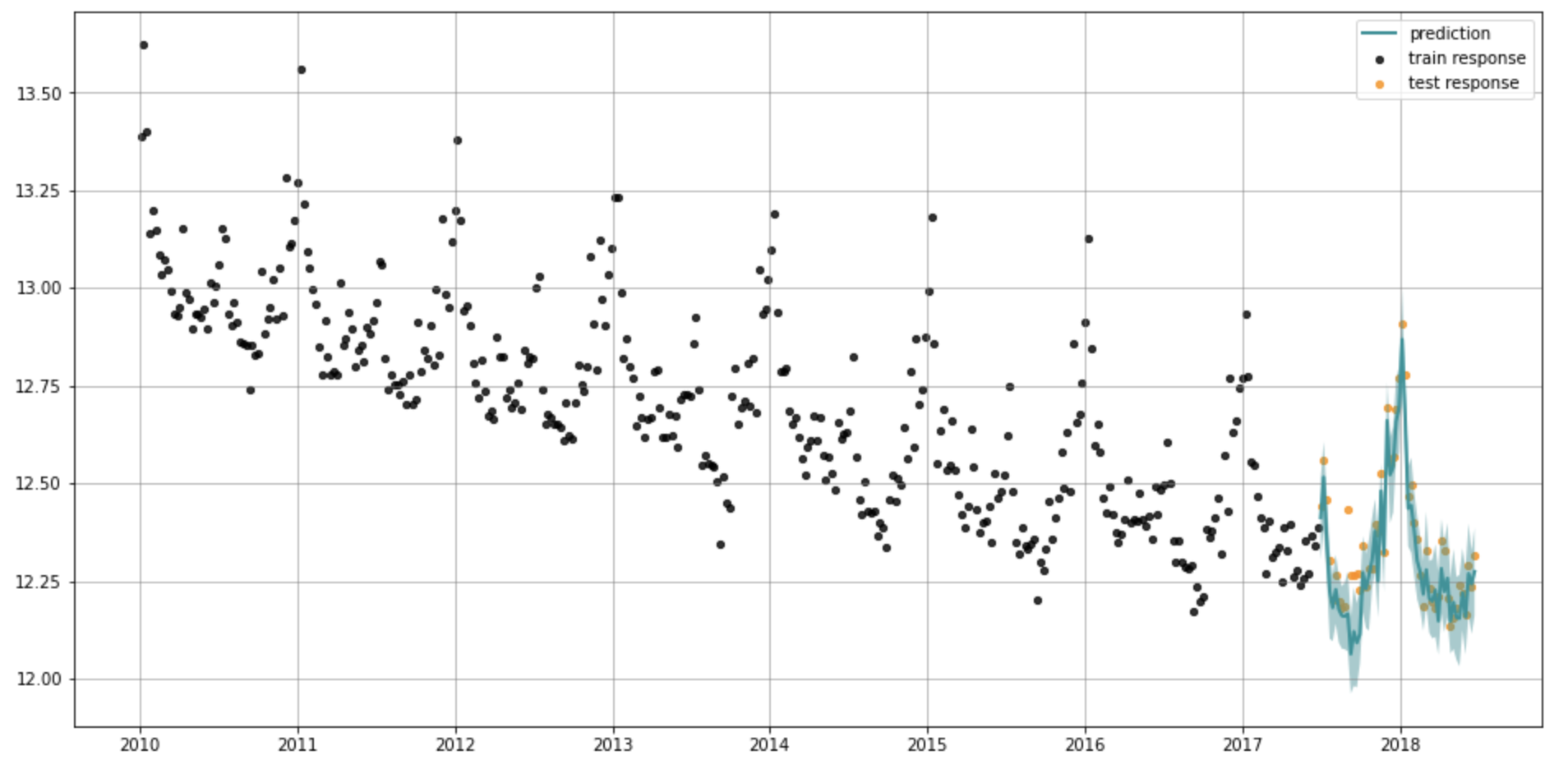This project
- is stable and being incubated for long-term support. It may contain new experimental code, for which APIs are subject to change.
- requires PyStan as a system dependency. PyStan is licensed under GPLv3, which is a free, copyleft license for software.
Orbit is a Python package for Bayesian forecasting models developed under object-oriented design. It provides a familiar and intuitive initialize-fit-predict interface for working with time series tasks, while utilizing probabilistic modeling api under the hood.
The initial release supports concrete implementation for the following models:
- Local Global Trend (LGT)
- Damped Local Trend (DLT)
Both models, which are variants of exponential smoothing, support seasonality and exogenous (time-independent) features.
The initial release also supports the following sampling methods for model estimation:
- Markov-Chain Monte Carlo (MCMC) as a full sampling method
- Maximum a Posteriori (MAP) as a point estimate method
- Variational Inference (VI) as a hybrid-sampling method on approximate distribution
Install from PyPi:
pip install orbit-mlInstall from GitHub:
git clone https://github.com/uber/orbit.git
cd orbit
pip install -r requirements.txt
pip install .import pandas as pd
import numpy as np
from orbit.utils.dataset import load_iclaims
df = load_iclaims()
df[['claims', 'trend.unemploy', 'trend.filling', 'trend.job']] =\
df[['claims', 'trend.unemploy', 'trend.filling', 'trend.job']].apply(np.log)
test_size=52
train_df=df[:-test_size]
test_df=df[-test_size:]from orbit.models.dlt import DLTFull
from orbit.diagnostics.plot import plot_predicted_data
dlt = DLTFull(
response_col='claims',
date_col='week',
regressor_col=['trend.unemploy', 'trend.filling', 'trend.job'],
seasonality=52,
)
dlt.fit(df=train_df)
# predicted df
predicted_df = dlt.predict(df=test_df)
# plot predictions
plot_predicted_data(
training_actual_df=train_df, predicted_df=predicted_df,
date_col=dlt.date_col, actual_col=dlt.response_col,
test_actual_df=test_df
)To cite Orbit in publications, refer to the following whitepaper:
Orbit: Probabilistic Forecast with Exponential Smoothing
Bibtex:
@misc{ng2020orbit, title={Orbit: Probabilistic Forecast with Exponential Smoothing}, author={Edwin Ng, Zhishi Wang, Huigang Chen, Steve Yang, Slawek Smyl}, year={2020}, eprint={2004.08492}, archivePrefix={arXiv}, primaryClass={stat.CO}}
- Hyndman, R., Koehler, A. B., Ord, J. K., and Snyder, R. D. Forecasting with exponential smoothing: the state space approach. Springer Science & Business Media, 2008.
- Bingham, E., Chen, J. P., Jankowiak, M., Obermeyer, F., Pradhan, N., Karaletsos, T., Singh, R., Szerlip, P., Horsfall, P., and Goodman, N. D. Pyro: Deep universal probabilistic programming. The Journal of Machine Learning Research, 20(1):973–978, 2019.
- Taylor, S. J. and Letham, B. Forecasting at scale. The American Statistician, 72(1):37–45, 2018.
- Hoffman, M.D. and Gelman, A. The No-U-Turn sampler: adaptively setting path lengths in Hamiltonian Monte Carlo. J. Mach. Learn. Res., 15(1), pp.1593-1623, 2014.


